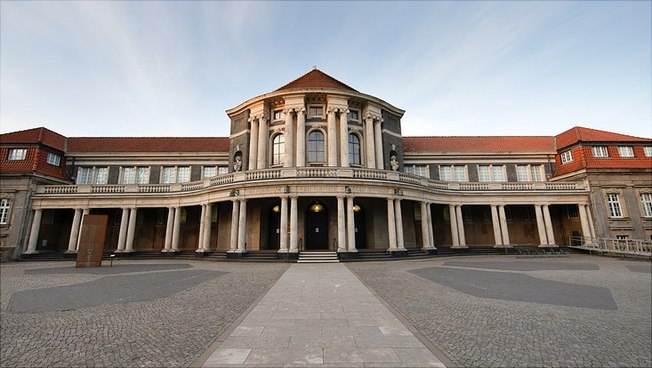Universität Hamburg Applying for Fifth Cluster
 © Universität Hamburg / Schell
© Universität Hamburg / Schell
In February 2024, the German Research Foundation (DFG) and the German Council of Science and Humanities announced which research initiatives can apply for new excellence funding. In addition to the existing 4 clusters, Universität Hamburg’s application now includes “Gateways to Health (Gateways)”.
“Gateways to Health (Gateways): How Pathogens Shape Global Life” is a research initiative developed in close collaboration with the University Medical Center Hamburg-Eppendorf. The University had applied for 3 new cluster initiatives and the infection research proposal was selected. Universität Hamburg is also involved in BlueMat: Water Driven Materials at the Hamburg University of Technology (TUHH), an initiative that also entered the next round. The final decision on the provision of funding is expected in 2025. The new funding line run by the German Federal and State Governments will span 7 years beginning in 2026.
Prof. Dr. Hauke Heekeren, president of Universität Hamburg: “Congratulations to the researchers involved! The ExStra competition is fierce and as a University of Excellence we are holding our own against strong contenders. In addition to our 4 existing clusters in physics, chemistry, climate research, and manuscript cultures, another research initiative in infection research is entering the race. We are thus applying for 5 clusters of excellence. The University Medical Center Hamburg-Eppendorf (UKE) is a close and strong partner. Also involved are the Deutsches Elektronen-Synchrotron (DESY), the Bernhard Nocht Institute for Tropical Medicine, the Leibniz Institute of Virology, and the Research Center Borstel. I thank all researchers who contributed to the 3 proposals in the fields of infection research, kidney research, and neurosciences. As spokesperson of the Hamburg State Higher Education Conference I also congratulate the Hamburg University of Technology on this achievement. Two successful proposals are sending a strong signal for Hamburg as a center of research.”
Prof. Dr. Blanche Schwappach-Pignataro, dean of the Faculty of Medicine and member of the board of the University Medical Center Hamburg-Eppendorf: “The Excellence Strategy of the Federal and State Governments provides the UKE with an excellent opportunity to collaborate with the University on sustainably strengthening Hamburg as a center of research with interdisciplinary projects on the big questions of our time. We are delighted that a research initiative with substantial involvement of a core UKE research area qualified for the next round of the competition and congratulate the researchers on this important milestone.”
The researchers within the gateways initiative aim to investigate how life on Earth is impacted by various pathogens—viruses, bacteria, and parasites. Experts from the biosciences, humanities, and social sciences will jointly examine not only the causes of infectious diseases but also their consequences and social impacts.
Another major focus is on developing possible prevention measures. Research into the molecular and cellular mechanisms which make people sick will be used as a starting point in building a basis for the expansion of knowledge about possible therapies. Another focus lies on analyzing political decisions, which have resulted from epidemics in different periods and their anthropological and social impacts.
With Gateways to Health specialists shall be enabled to examine infectious diseases from various angles and develop appropriate measures for tackling the challenges of a rapidly changing world.
There are currently 57 clusters of excellence at 34 university locations throughout Germany. These are automatically entitled to apply for the next funding round. Moreover, some German universities, including Universität Hamburg, have presented ideas for possible additional clusters. One of the ideas Universität Hamburg submitted was successful; the University will help all participants craft this into a convincing and successful application.
Clusters of excellence are interdisciplinary research cooperations characterized by outstanding academic work and innovative research approaches. They are part of the so-called Excellence Strategy of the Federal and State Governments set up to boost top university research in Germany. In 2019, Universität Hamburg had successfully applied to this funding line which awards large funding amounts. 4 clusters of excellence were allocated and the University was deemed a University of Excellence—one of only 11 German universities and university collaborations to earn the distinction.
